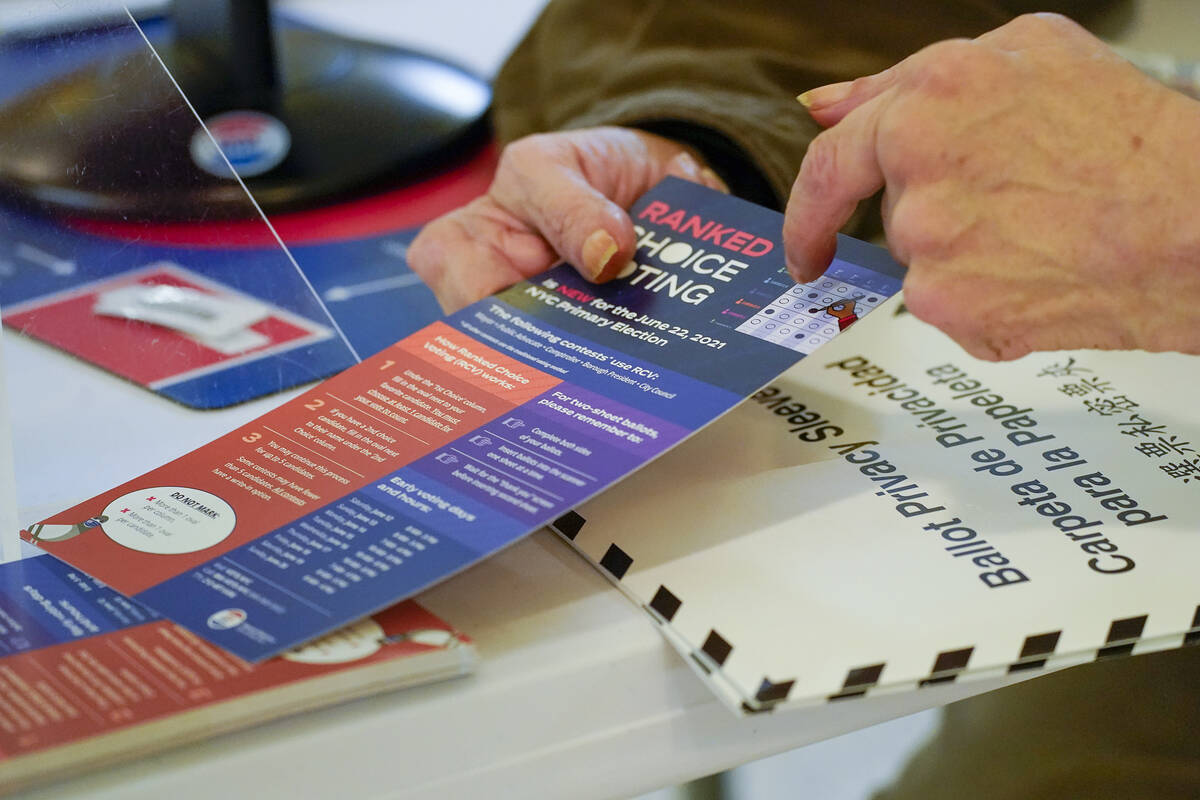Rank-choice voting (RCV) gets a bum rap from the Sept. 25 Review-Journal editorial, “Silver State can do without ranked-choice voting.” I don’t see the difficulty in ranking one’s choices from one to five, especially in a state where people rank their sports teams before placing bets and rank their favorite restaurants or venues before going out on the town. Why not in political primaries?
■ RCV will take some power away from the partisan political parties that pick the candidates they want to run for office today, leaving the people with few and undesirable choices.
■ RCV does not, necessarily, invalidate incomplete ballots if the law is written well. If voters choose to rank only three candidates, the left-out candidates receive 0 votes on that ballot.
■ RCV improves the democratic process, favoring less extremist and more moderate candidates who will appeal to the larger groups of voters (independents) and make it easier for a good candidate to reach the necessary 50-plus percent to win office. It may save municipalities money, too.
■ RCV does not give Democrats the edge if the GOP would present policies that a majority of voters want. Democrats present popular policies, but the GOP presents an authoritarian program. The GOP needs to consider policies that give a boost to the majority of citizens to help rebuild a strong middle class.
The Founders created a new, unique form of government, empowering the governed to select the people’s representatives to govern the nation. Ranked-choice voting puts the power back where it belongs: with the people.

